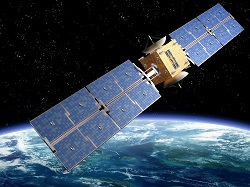Taking additive manufacturing into the space age
Additive layer manufacturing is a resource and time-efficient industrial process that applies material, layer by layer, to create 3D parts. Sectors ranging from aerospace through to mould manufacturers have identified this technique as having great potential for reducing the amount of raw material needed to begin with. What the 4M project has done is to add a great deal of flexibility to this process. ‘The main goal of the 4M project was to develop elements of a unique additive layer manufacturing process based on metallic powder,’ explains project coordinator Dr Erich Neubauer from RHP Technology, Austria. ‘This metallic powder, consisting of particles of some tens of micrometre, is injected into a plasma torch that is applied like a manual welding torch.’ The results are currently being analysed at the feasibility level by the European Space Agency, and the project team is also hopeful that the process could have potential in the manufacture of turbine parts for hydropower generation. Digital slicing While the plasma torch was the starting concept from the hardware side, the project team also developed a software system that takes the electronic file of, say, a cup, makes a 3D picture and applies a slicing algorithm. Each layer of the cup, digitally cut up by the software, is then fed through the 4M system to the hardware – the torch – which builds up a real 3-D cup using the plasma torch to melt the metallic powder. Lightweight, flexible solutions One of the elements that make the newly-developed system innovative is that it works with several different materials at the same time. The plasma torch can be fed through several nozzles with different materials in sequence or at the same time. Having developed a prototype of the plasma torch and additive manufacturing system, the team investigated several different material systems. ‘This concept allows us to manufacture multi-material shapes,’ says Neubauer. ‘If we take our cup example again, we could build up the lower section in one material, and the upper part in another.’ This allows manufacturers to put in functionality, which is important for applications like space. ‘Here we could add a lightweight component for example, and then add something else to increase hardness.’ Indeed, space has been a key driver of this technology. Components used in space generally need to be lightweight and not very large, which means that the additive manufacturing concept is very interesting in terms of cost savings and lead time reduction. Starting with a big block of metal for example means that the amount of material that sometimes needs to be subtracted by machining to produce the part you need can be up to 90 %. The additive manufacturing concept pioneered by the 4M project by contrast only uses the amount of metallic powder needed to build up the object required and only a residual amount of material needs to be finally taken off through subsequent machining. Neubauer believes that the way forward now is to focus on further refinement. ‘Our original idea had been to develop systems that we could then commercialise, but I don’t feel we are yet at this level,’ he says. ‘This would require much more investment. What we want to do instead is to establish a manufacturing centre that duplicates our set up in the project. This will provide products and parts on demand.’ The company is currently in negotiations over establishing this facility.
Keywords
4M, manufacturing, industrial, material, 3D, aerospace, mould, manufacturers, metallic powder, RHP, plasma torch, European Space Agency, hydropower



